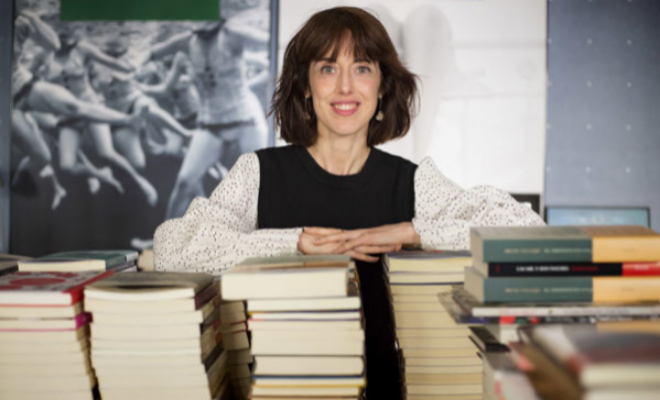- File Read more interviews on the back cover of EL MUNDO
Zaragoza, 1979. Writer. His latest book, The Infinite in a Reed (Siruela) is a story from the books told in the language of myths. The Critical Eye Award of National Radio of Spain has chosen him as the best of the year.
What exactly do you do? That's exactly the hard part of the question. Every day I invent my profession: let's say I am a kind of comedian of the league of literature that leads a traveling life. I collaborate in the press, I write, I go where they call me, to speak in reading clubs, in libraries ... And that brings it with joy or often thinks "I should have studied law" All my family studied law and it was what they wanted for me. But I was the black sheep that made Classical Philology and I am happy with that rebellion. At one time I worked at the university, I taught, but I quit because literature is very absorbent. Books need time to make them and to accompany them. What do you like about having done Philology? My father told me The Odyssey one night, when I was little, and transformed me into a mythomaniac. I collected books of Greek and Roman mythology at the beginning and later, Nordic and Eastern ... I did Classics because I wanted to read Homer in his language. Since then, everything I've done has had a perspective that has to do with the classic Mediterranean world. I suppose he has given me a different background and a different timbre when writing. The story he tells in the book of Homer and Calypso, for example, explains everything about love and desire today too. There is the essential. There is the desire to distance ourselves in search of the dangerous. And there is the homesickness. There it is, but that does not mean that there is nothing more to talk about. The book is an essay, but it reads like a skein of memories from other books. When I taught I realized that what the students remembered were the anecdotes : a character, an adventure, a sensation ... So I assumed that this is a way of transmitting knowledge and I started with it. The book is an essay but it has a structure like the one thousand and one nights . And I don't know if the subject is really an excuse to recover some stories that mean something to me. But I also want to reflect on reading and create a genealogy of the survival of the book. Let's go to the essay part. What is the most important idea of the book? The important idea is the survival of the book: it would have been easier if the knowledge transmitted by the books had disappeared in the midst of so many wars and looting. But there were always those who preserved them, who gathered them together. It is miraculous that we have these millenary words today. Why did they do it? We can find the story of many humble people who loved books with the purest feeling. It is moving and is very similar to what readers feel today. Notice that very reading people talk about books with the language of love. Because the books that matter to us say something about us, beyond knowledge. The book is the only space in which we manage to abolish time, in which we interact with voices from another era and participate in something that does not die. It is a transcendent experience that is not easy to find. I know a Cuban poet who talks about the libraries he lost in exiles and divorces as of very old lovers. From books we can have more vivid memories than things that happen to us. Neurologists have explained it: the brain is confused, we are all a little quixotic. True or false: we read because we are ducks in social life. We are ducks, but reading helps us return to reality better prepared. I remember a phrase by Cesare Pavese, something like "in a social event there will always be someone who is having a worse time than you." That has helped me a lot.According to the criteria of The Trust Project
Know more- literature
- culture
- history
- Final Interview
An unfinished palazzo in Madrid
History The truth about the epic hero: "El Cid was doing his thing, like everyone else: he wanted to be king"
The Paper Sphere Esther Tusquets, the world is made with books

